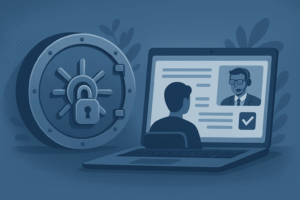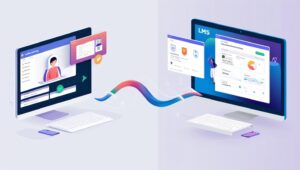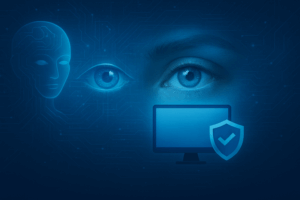One of the primary concerns institutes face is the rising number of cheating incidents and academic misconduct during online examinations. Over time, schools and colleges have realized how consequential it is to invest in technology that will help them expand their traditional learning methods. Technology not only helped teachers to continue their classes remotely but conduct secure online examinations through remote proctoring. Remote online proctoring solutions provide a comfortable and convenient online test-taking experience to both students and instructors. However, more convenience looms a greater challenge, the most prevalent of which is cheating.
WHY IS CHEATING SUCH A BIG CONCERN?

Exams are designed to fairly assess a student’s performance. If the impartiality of the examination is compromised, the outcomes of the examination would be wrong to represent its true capability. Apart from the incorrect assessment of students’ learning progress, cheating raises other issues that you should be aware of as an educational institution. Content leakage, or the unlawful release of test papers to third parties, is a matter of grave concern. When this happens, the integrity of the online tests gets compromised. Content leakage might occur for many reasons, including lack of monitoring or a flaw in the equipment used during online tests. Nonetheless, those may have been contributory factors that encouraged pupils to cheat more.
Reasons behind rising cheating incidents during online exams:
1. PRESSURE:

To keep a scholarship or prevent academic probation, students may require a specific GPA. They might be afraid of family pressure to score good grades. They may have to work full-time and cannot concentrate on accomplishing the tasks they could otherwise do. As a result, they adopt the most convenient option, i.e. cheating.
2. LACK OF PREPARATIONS:
For some of the reasons mentioned above, students might be tempted to cheat if they simply didn’t put much effort over the entire semester. The possible reasons are that they did paid jobs, concentrated on extracurricular activities, had family trauma, or suffered from anxiety or depression.
3. COMPETITIVENESS:
Students start to assume that we live in a competitive culture from an early age. Think how frequently we hear, “Winning Isn’t all; it’s all.” In some institutes, they prefer “not winning or losing, it’s the game you play,” but they should realize that they want to do better and might push individuals who feel that they can’t really “win” to use dubious techniques.
4.OPPORTUNITY:
According to surveys, students are more prone to cheat on protocol tests than those polled in the classroom. Some treat it as though the teacher is about to leave the classroom at a regular test, and it’s a free trial abruptly. Many who normally would be honest may find it difficult to avoid cheating if it looks simple to accomplish without being detected.
WHAT METHODS DO STUDENTS USE TO CHEAT ON ONLINE EXAMS?
It’s no longer necessary to scribble math formulas on your palms. Nowadays, students have devised ingenious techniques to cheat, most of which make use of the technology accessible to them.
1. SCREEN-SHARING TO ANOTHER COMPUTER:
During online tests, a student doesn’t need much to perform screen sharing. Because the examinations are performed remotely, the student can have a third party to help them give answers or assistance. Students have also utilized software like Team Viewer, which allows a third party to remotely manage a student’s computer and complete the test on their behalf.
2. CREATING FALSE IDENTITIES IN ORDER TO OBTAIN THIRD-PARTY HELP:
During in-person tests, an exam facilitator or proctor can authenticate the students. When examinations are taken online, it gets more difficult to verify the true identities of candidates, especially if they are under supervision. Even if a proctor is watching via webcam, students can be impersonated by others by displaying forged identifications such as a false driver’s license or a school identification card, which are difficult to validate electronically.
3. USING ADVANCED ELECTRONIC DEVICES:

Not only are high-tech devices used by secret agents on espionage operations, but they are also utilized by students to cheat on examinations. Micro Bluetooth-powered earphones, invisible smartwatches, and augmented reality glasses have been used by students to help them study during examinations. These devices may seem normal and almost unnoticed, especially during online tests when supervision via camera may not be as efficient and visually visible. Additional gadgets can be stowed under the table by students.
4. KEEPING NOTES ON SMART PHONES AND USING MOBILE PHONES:
Students have started utilizing cellphones to retain exam-related notes, such as formulae and terminology that they may refer to during online examinations, secretly. Additionally, mobile education apps like Cymath and Brainly might assist students in swiftly solving test questions. You may, for example, ask a question on the applications and receive automatic recommendations or real-person responses within minutes.
HOW TO PREVENT CHEATING DURING ONLINE EXAMS:
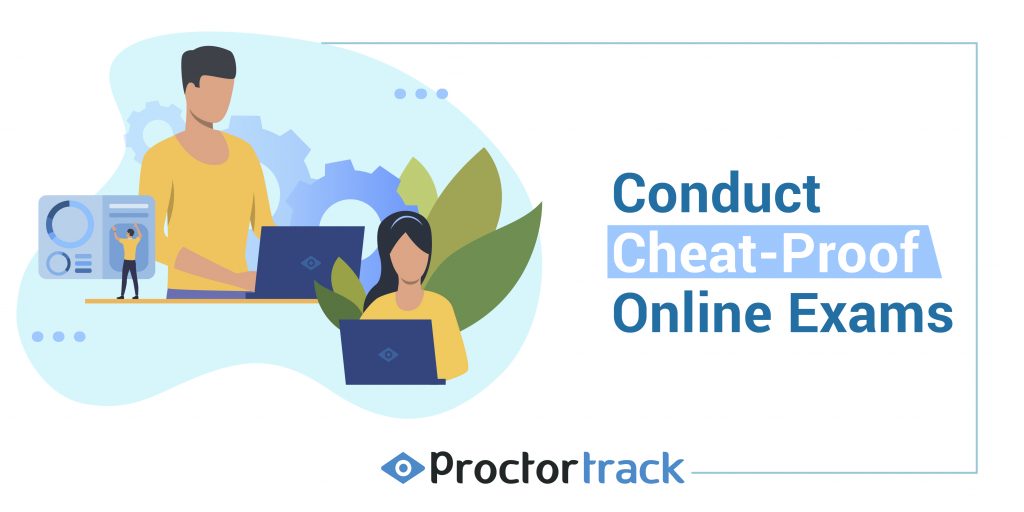
Exam proctoring software is the most popular solution. With features like automatic monitoring, ID verification, and secure browser lock, these solutions allow students to take online examinations safely. This method, however, may be fraught with technical difficulties and hefty expenditures. Some institutions have chosen a more easy and cheap method of testing students as an alternative to exam proctoring software. For example, Instructor questions can send questions via email as document attachments. From the time they access the questions, students are monitored via a camera throughout the exam. Regardless of how many restrictions you put in place to prevent academic dishonesty, at least one student will always break the rules. Plagiarism, illegal cooperation, and students looking things up while taking an exam, are some common examples, and these issues further amplify on online quizzes and tests.
So, to overcome these problems we can use the following methods:
1. MAKE QUESTIONS THAT NEED HIGHER-ORDER REASONING:
Create questions on the analysis, synthesis, and evaluation levels instead of having students reply to queries that can be answered with a quick online search or even by looking up the answers in their textbooks.
2. USE A VARIETY OF QUESTION TYPES:
Instead of having an exam with only multiple choice or true/false questions, incorporate open-ended ones. Students must be compelled to explain their replies using particular facts and supporting narratives that are outstanding to their own understanding of the course topics. It is more difficult for students to offer the same response as their peers dictate for open-ended questions.
3. TECHNICAL ISSUES:
Offer a practice exam to make students familiar with the online testing features. Also, prepare the test settings to automatically end the exam when the time runs out. This way, if a student complains that they have “technical issues,” you can check whether they genuinely missed the question or were just planning to search for answers.
4. VERIFY TEST TAKERS’ TRUE IDENTITIES:
While it is uncommon for a different individual to come up and take a candidate’s exam, validating test takers’ true identities provides a safety net to avoid such situations. A proctoring service may also undertake ID verification by comparing the test taker’s ID document to their biometric profile.
5. REMIND STUDENTS ABOUT ACADEMIC INTEGRITY POLICIES IN A CREATIVE WAY:
Create and publish a video outlining the requirements for the online test, as well as discuss the academic integrity policy and repercussions outlined in the course syllabus. Students may have certain psychological effects after seeing and hearing their instructor mention academic integrity just before an exam, which may dissuade students who were considering cheating.
6. DIFFERENT VARIATIONS OF THE SAME TEST ARE AVAILABLE:
It is advised to have many copies of the same exam so that students taking the test in the same physical location are less likely to have all of the same questions.
7. BACKTRACKING SHOULD BE STRICTLY PROHIBITED:
Students should concentrate only on one question at a time, answer it with a definitive response, and then go on to the next. Students will spend less time at the conclusion of the test looking for the proper answer if backtracking is prohibited, and they will be forced to answer the question to the best of their knowledge.
8. RESTRICT TESTING WINDOWS:
Create online examinations in the same way as on-campus final exams have a set testing window for each subject. Allow each student to begin the test at the same time and limit the amount of time they have to complete it. Consider providing three sets of examinations at three separate start times if you have students from different time zones. Though the “open book” test is default — as there is nobody looking at students to take the examination — it is necessary to merely offer sufficient time for a student who understands the knowledge to have the right amount of time to successfully pass the exam. For students who get accepted for testing accommodations, make sure to develop unique, extended time settings.
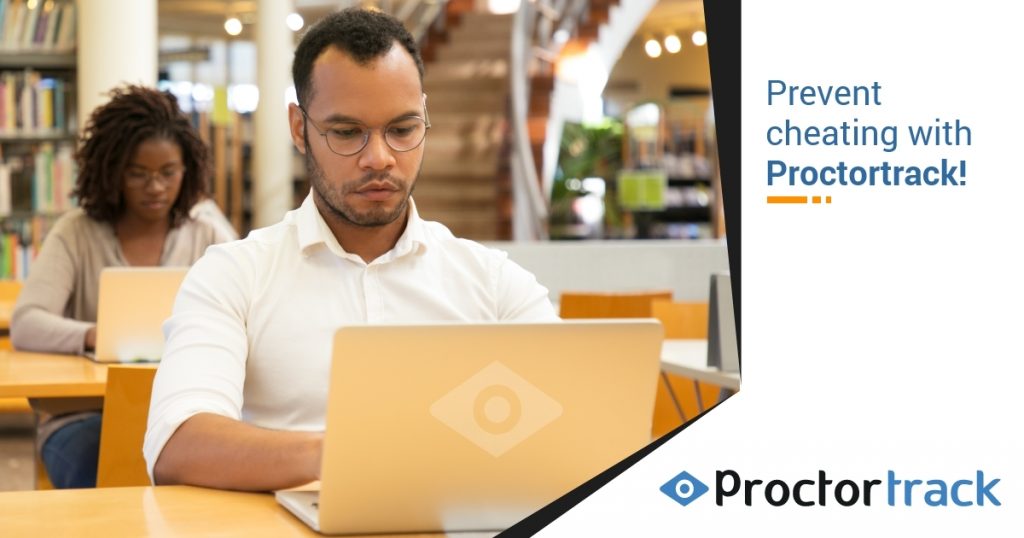
In the transition to remote teaching, the major goal is to offer students a meaningful connection with professors and peers. What does this have to do with online evaluation that is secure and authentic? Cheating practices are fueled by pressure and stress, and today’s kids are undergoing both. As a result, students will feel connected, supported, and inspired to do their best work. Institutions must learn that not all online students are academically honest and that they must work on maintaining the integrity of tests, especially if they are online. Finally, the lack of in-person supervision has made it simpler for students to cheat on online examinations. Knowing how students cheat in novel ways might help you find the correct answer and alleviate test security issues.

